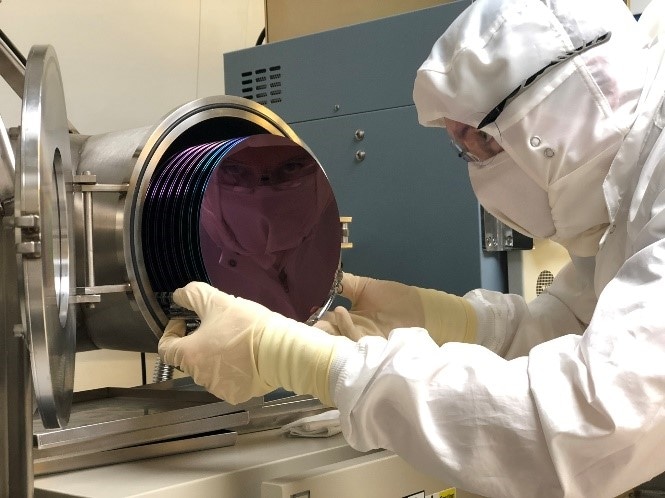Electronics grade graphene company Grolltex, has shipped the first version of its patented single atom thick strain sensor to a large European sensor maker partner. The company calls this sensor device, ‘the smallest, most sensitive sensor in the world’ as the base sensing material is only one atom thick and the sensor performance is such that it is capable of measuring the contractive strength of individual heart cells called ‘cardiomyocytes’, providing an important parameter on heart cell health.

“Our strain sensor is very versatile because it is small, flexible, robust and with a gauge factor of up to 1300, it is incredibly sensitive. This means it can be used in a wide variety of applications”, said Jeff Draa, Grolltex CEO. “For example, it can be layered into the skins of airplanes to sense micro stress in the fuselage or be used as a wearable blood pressure monitor in a skin patch configuration. The prototype we delivered to our European partner was designed to measure any environmental pressure or strain that a silicon microchip might experience while sitting in its packaging. This can be important information for many defense or autonomous vehicle related device designs”.
Grolltex, short for ‘graphene-rolling-technologies’, is the largest commercial producer of single layer or electronics grade graphene in North America. The company is lately focusing more of its efforts on servicing sensor markets in the life science and biology areas and seeing continually more adoption of graphene as a sensing material for such uses as DNA sequencing and new drug discovery. Monolayer graphene films are today seen as the most promising futuristic sensing materials for their combination of surface to volume ratio (the film is only one atom thick) and its conductivity (the most conductive substance known at room temperature).
“For advanced sensor makers that operate at the nano-scale, there is no better material to design your device with than single layer graphene”, said Draa. “The applications and devices that our customers are designing with this material are enabling many previously unobtainable measurements and single layer graphene is now available and affordable for industrialization”. Grolltex makes the raw materials for nano-sensing as well as designing specific sensor devices and packaging for many critical, next generation applications. “We are seeing an explosion of activity in the micro-sensing world as sensor makers are picking up on the versatility and measurement performance benefits of this single atom thick material”.